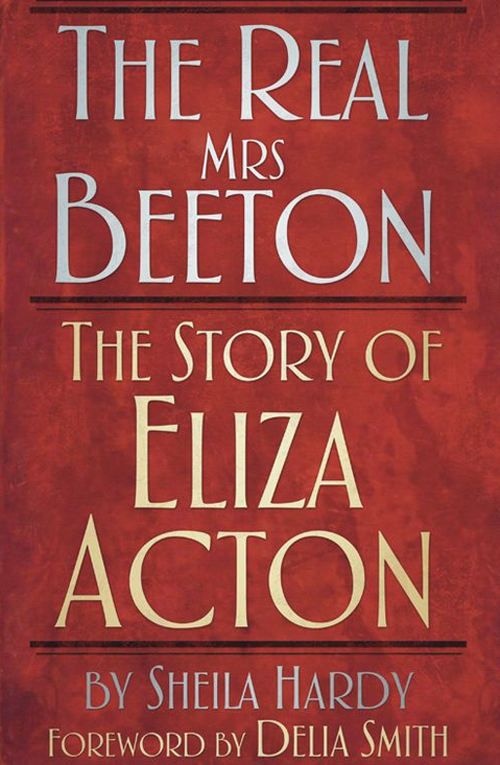The Real Mrs Beeton. The Story of Eliza Acton
Review

The Real Mrs Beeton. The Story of Eliza Acton, Sheila Hardy, The History Press, 2011, hardback, 223 pp, £16.99, ISBN 9780752461229; Napoleon's Chicken Marengo. Creating the Myth of the Emperor's Favourite Dish, Andrew Uffindell, Frontline Books, 2011, hardback, 276 pp., £19.99 ISBN9781848325784
In twenty-first century austerity Britain there has been a resurgence of interest in the cooking and preparing meals evidenced by a plethora of television competitions and a profusion of advice to the aspiring domestic chef. The historical context of how we choose and prepare the food we eat is therefore ripe for further exploration. In Sheila Hardy's illuminating story of Eliza Acton the contribution to this vital aspect of our domestic history of ‘the forgotten hero of our culinary past' is explained and celebrated. The modest achievements of this obscure Victorian spinster from Tonbridge, who produced the seminal and arguably greatest cookery book ever written in the English language, are recalled in this well-researched and vividly written narrative. She is hailed as the first cook to write recipes listing precise amounts of ingredients in a clear and accessible format, many of which remain in use in thousands of kitchens today, produced the first cookery book for general use and became a pioneer campaigner for healthy eating, including gluten-free diets. Delia Smith, in a foreword acknowledging her own debt to Acton, enthusiastically welcomes this new study of a most accomplished and significant cookery writer and gifted communicator. Social and economic historians will welcome her appendix itemising and comparing some typical food prices of the 1850s with other contemporary living costs and teachers currently being encouraged to place a fresh emphasis on domestic science in the school curriculum will find it an inspirational resource.
It is not often that accomplished military historians are found exploring the produce of the kitchen in their work but Andre Uffindell, a leading expert on the Napoleonic Wars has donned his chef's hat to demolish the myths around Chicken Marengo, supposedly created on the eve of Bonaparte's victory at Marengo, which ‘rapidly conquered Paris and became a renowned symbol of French haute cuisine'. He argues that the dish was part of Napoleon's spin on the first battle he fought as head of state, with the full, administrative resources of France at his disposal, enabling him to present it as ‘a masterly manoeuvre' rather than ‘a near defeat salvaged largely by luck', which had left about 2,000 corpses strewn across the battlefield. By winning Marengo, the author argues, Napoleon not only ‘wrested north-western Italy back from the Austrians', but effectively also ‘tightened his grip on France just seven months after his seizure of power in a coup d'etat in 1799. He also demonstrates how effectively the emperor spun a myth around the amount of food he ate ‘in order to project a positive image of himself' with one chapter originally entitled ‘The belly of an Emperor'. Unusually, yet appropriately, this fascinating exploration of the mythologizing of a pivotal event in military history concludes with an appendix detailing the recipe and cooking instructions for this iconic dish encouraging readers to don their chef's aprons. Enjoy!

